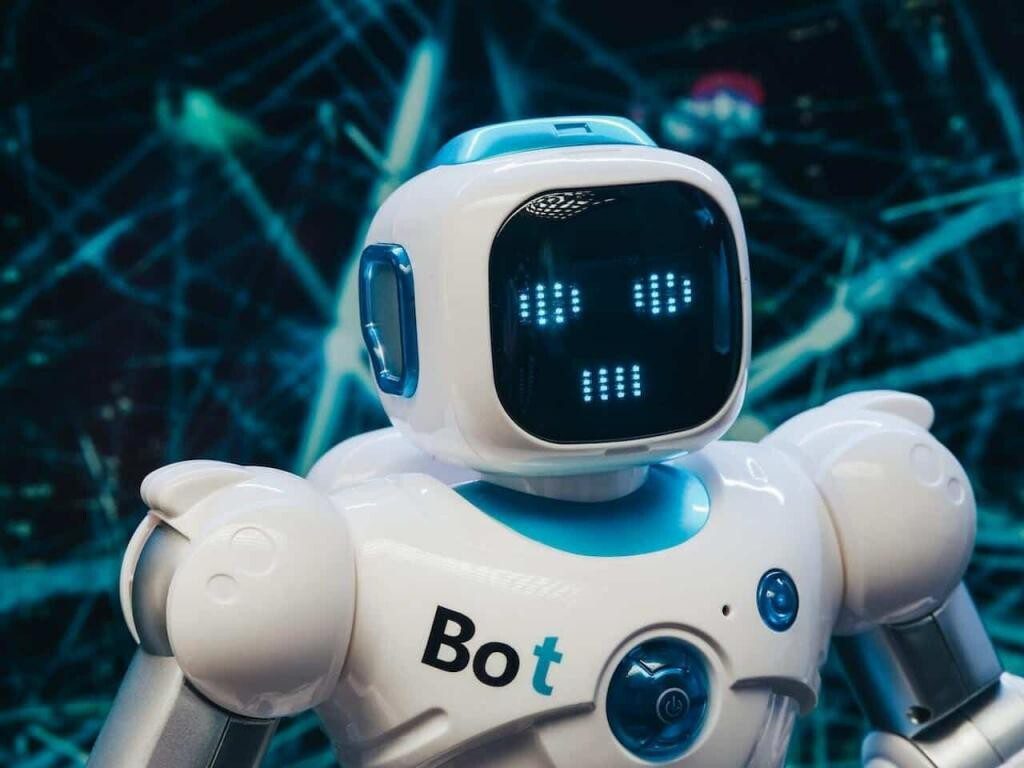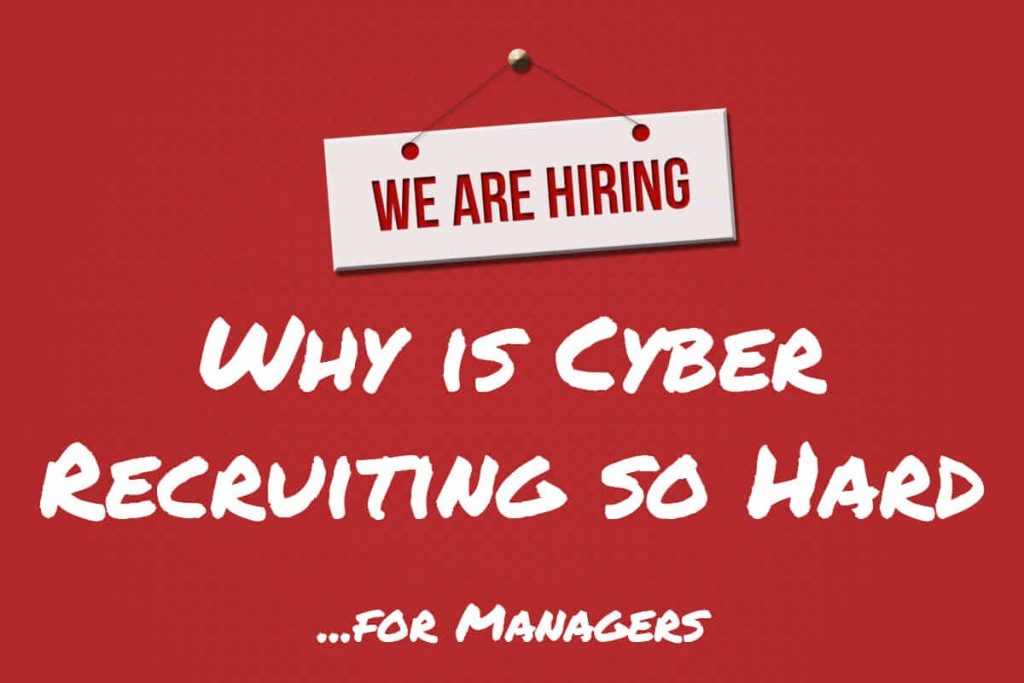Will AI replace cyber security jobs? That a very good question on everyone’s mind right now!
No doubt, that the integration of AI into the cyber security is transforming how we combat cyber threats.
In this blog, we’ll explore the current state of cybersecurity, the rise of AI in the field, its impact on cybersecurity jobs, and the future of cybersecurity careers.
Additionally, we’ll delve into how professionals can adapt to this AI-driven landscape and consider the ethical and privacy implications of using AI in cybersecurity.
Read on as I discuss, if and how AI might replace your job…
The Current State of Cybersecurity
Every day, you face a barrage of cyber threats that are becoming more sophisticated and frequent.
Phishing schemes, ransomware attacks, and state-sponsored hacks are just a few of the challenges you encounter.
And these threats don’t discriminate; they target large corporations, small businesses, and individuals alike, making your role critical.
Your job involves a variety of tasks…
As an information security analyst, for example, you conduct regular security audits to identify vulnerabilities before hackers can exploit them. You implement protective measures, such as firewalls and encryption, to fortify your organization’s defenses. And when a security breach occurs, you’re on the front lines, responding swiftly to mitigate damage and restore security.
The demand for your skills is skyrocketing…
Job postings for cybersecurity roles are growing at a rate far exceeding that of other IT jobs. Yet, despite this high demand, there’s a significant shortage of qualified professionals.
This shortage translates into competitive salaries and abundant opportunities.
The U.S. Bureau of Labor Statistics reports that the average salary for a cybersecurity analyst is around $120,360 per year. This lucrative pay reflects the vital importance of your work in protecting sensitive information and systems.
But now, you have a coworker that’s threatening your position.
The Rise of AI in Cybersecurity
Imagine your company has just integrated AI into your daily operations.
The shift is unsettling but also adds a powerful new tool to your toolkit.
AI technologies such as machine learning and deep learning are now part of your arsenal, helping you detect and respond to threats with unprecedented speed and accuracy.
Analysis Automation: With AI, you no longer have to manually sift through endless logs and data streams to identify potential threats. AI systems can analyze vast amounts of data in real-time, flagging anomalies that might indicate a security breach. For instance, machine learning algorithms learn from historical data to predict and identify suspicious activity, giving you early warnings about potential attacks.
Incident Response: Automated response systems can execute predefined actions when a threat is detected, such as isolating affected systems or blocking malicious IP addresses. This automation not only speeds up response times but also ensures that immediate actions are taken to mitigate risks, even before you’ve had your morning coffee.
Vulnerability Management: AI can continuously scan your systems for vulnerabilities, prioritize them based on risk level, and even suggest remediation steps. This proactive approach helps you stay ahead of potential threats and maintain a robust security posture.
Job Creation: As AI becomes more integrated into cybersecurity, it’s also creating new job roles and responsibilities. You might find yourself working alongside AI cybersecurity specialists or data scientists who focus on improving AI models for security applications. This evolution requires you to acquire new skills, such as understanding AI and machine learning principles, to stay relevant in your field.
Despite the benefits, AI also brings challenges. The technology can sometimes produce false positives, and there’s always a concern about AI systems being targeted by adversaries. But with continuous learning and adaptation, you and your AI tools become more effective over time.
Ultimately, will AI replace cyber security jobs?
Impact on Cybersecurity Jobs
As a cybersecurity professional, you start noticing the impact of AI on your daily tasks and the job market.
Traditional roles like network security engineer and information security analyst are evolving.
AI tools now handle many routine tasks, such as monitoring network traffic and identifying potential threats. These tools can analyze vast datasets much faster than humans, flagging suspicious activities that you might have otherwise missed.
With AI taking over routine monitoring, your role shifts to more strategic tasks. You now focus on interpreting AI-generated data, making critical decisions, and fine-tuning AI systems to improve their accuracy.
This shift requires you to continuously develop new skills, such as understanding machine learning algorithms and data analysis.
Emerging job roles start to appear, blending cybersecurity expertise with AI knowledge. Positions like AI cybersecurity specialist and cybersecurity data scientist become in demand.
These roles will require a deep understanding of both fields, enabling professionals to develop and manage AI-driven security systems. As companies adopt these technologies, they look for talent that can bridge the gap between traditional cybersecurity and AI.
However, there are concerns about job displacement. AI’s ability to automate tasks raises questions about the future of entry-level positions in cybersecurity. Jobs that primarily involve routine monitoring and basic threat detection are at risk.
To mitigate this, professionals need to adapt by upskilling and shifting towards roles that require human intuition and strategic thinking.
The rise of AI also introduces the need for new qualifications. Certifications and training programs focusing on AI in cybersecurity become essential. Courses on machine learning, data science, and AI ethics start to populate your professional development plan.
Unfortunately, organizations like (ISC)² and CompTIA have not yet begun to offer specialized certifications to help you gain these necessary skills but hopefully will.
Despite the challenges, AI brings significant opportunities. It enhances your ability to detect and respond to threats, making your work more effective and impactful. By embracing AI, you not only secure your career but also position yourself at the forefront of the AI security.
What now of the future?
The Future of Cybersecurity Careers
As AI becomes more entrenched in cybersecurity, you’ll see the job landscape shifting dramatically.
The demand for specialized roles that combine AI expertise with cybersecurity knowledge is growing.
Companies are on the lookout for AI cybersecurity specialists who can design and manage AI-driven security systems. These roles require a deep understanding of both AI technologies and cybersecurity principles.
You’ll also notice an increasing need for hybrid roles. For example, a cybersecurity data scientist focuses on analyzing security data using machine learning algorithms to predict and prevent cyber threats. This role requires strong skills in data analysis, programming, and an understanding of cybersecurity threats and defenses.
Interested in reading more about the future of cyber security?
How will you prepare for these emerging roles?
Adapting to the AI-Driven Cybersecurity Landscape
As AI continues to transform the cybersecurity landscape, adapting to these changes becomes crucial for your career.
First, focus on acquiring new skills that integrate AI with cybersecurity. This includes understanding machine learning algorithms, data analytics, and how AI can be applied to threat detection and response.
Cybersecurity Competitions: Participating in cybersecurity competitions, hackathons, and CTFs can also help you hone your skills. These events provide hands-on experience with real-world scenarios, allowing you to apply AI techniques in a practical setting.
Professional Development: Continuous professional development is essential. Attend industry conferences, webinars, and workshops that focus on the intersection of AI and cybersecurity. These events are opportunities to learn about the latest advancements and best practices. They also provide a platform to connect with peers and experts who can offer valuable insights and advice.
Online Communities: Utilize online resources and communities. Websites like GitHub, Stack Overflow, and Reddit have active communities where professionals share knowledge, tools, and experiences related to AI and cybersecurity. Engaging with these communities can help you stay current with the latest trends and technologies.
Ethical and Privacy Considerations
As AI becomes more integral to cybersecurity, ethical and privacy considerations take center stage. While AI can significantly enhance security measures, it also raises important questions about data privacy and ethical use.
AI Bias: One of the primary ethical concerns is the potential for bias in AI algorithms. If the data used to train these algorithms is biased, the AI’s decisions can be unfair or discriminatory. For example, an AI system used to detect fraudulent activities might disproportionately target certain groups based on flawed data. To address this, you must ensure that the data used is diverse and representative, and continuously monitor AI systems for bias.
Privacy Concerns: AI systems often require large amounts of data to function effectively. This data can include sensitive information, raising the risk of privacy breaches. As a cybersecurity professional, you need to implement strong data protection measures. This includes encryption, anonymization, and strict access controls to ensure that personal data is handled responsibly.
Transparency: Transparency is crucial. Stakeholders should understand how AI systems make decisions, which calls for explainable AI. Explainable AI aims to make AI decision-making processes more transparent and understandable to humans. This transparency helps in building trust and ensuring that AI systems are used ethically.
AI Surveillance: Another ethical consideration is the use of AI in surveillance. While AI-powered surveillance can enhance security, it can also infringe on individual privacy rights. Balancing security and privacy are a delicate act. It’s important to use AI in ways that respect individuals’ privacy while effectively protecting against threats.
To navigate these challenges, stay informed about the latest developments in AI ethics and privacy. Organizations like the IEEE Global Initiative on Ethics of Autonomous and Intelligent Systems and the European Commission’s guidelines on trustworthy AI provide valuable resources and guidelines.
Will AI Replace Cyber Security Jobs?
It’s clear that AI is both a powerful ally and a complex challenge. The integration of AI into cybersecurity operations is transforming how threats are detected, analyzed, and mitigated, enhancing efficiency and accuracy. However, these successes are balanced by challenges such as bias in AI algorithms, false positives, and ethical concerns.
Adapting to this AI-driven landscape requires continuous learning and upskilling. By staying updated on AI technologies and their applications in cybersecurity, you can ensure your skills remain relevant and valuable. Engaging with professional communities, attending industry events, and pursuing specialized certifications are essential steps in this journey.
Moreover, ethical considerations and data privacy must be at the forefront of AI implementation. Ensuring that AI systems are fair, transparent, and secure will help build trust and maximize their benefits while minimizing risks.
Looking forward, the cybersecurity job market will continue to evolve, creating new roles that blend AI expertise with traditional cybersecurity skills. This shift presents exciting opportunities for those ready to embrace change and innovate.
Interested in More?
Choose the Right Career, Cyber Security vs Ethical Hacking
Navigating the Cybersecurity Landscape for a Trailblazing Career!
What Are Your Thoughts?
Will AI replace cyber security jobs at some point?
Have they already been integrated at your place of employment?
Do they now automate some or many of the manual processes you once did?
Feel free to comment below!



